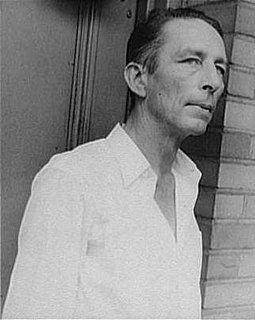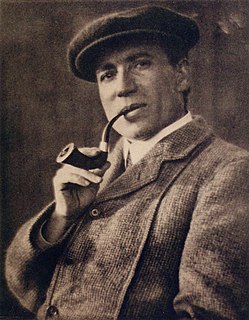A Quote by John Connolly
Without a human voice to read them aloud, or a pair of wide eyes following them by flashlight beneath a blanket, they had no real existence in our world. They were like seeds in the beak of a bird, waiting to fall to earth, or the notes of a song laid out on a sheet, yearning for an instrument to bring their music into being.
Related Quotes
Night was falling. Birds were singing. Birds were, it occurred to me to say, enacting a frantic celebration of day's end. They were manifesting as the earth's bright-colored nerve endings, the sun's descent urging them into activity, filling them individually with life nectar, the life nectar then being passed into the world, out of each beak, in the form of that bird's distinctive song, which was, in turn, an accident of beak shape, throat shape, breast configuration, brain chemistry: some birds blessed in voice, others cursed; some squeaking, others rapturous.
Did you know that the human voice is the only pure instrument? That it has notes no other instrument has? It's like being between the keys of a piano. The notes are there, you can sing them, but they can't be found on any instrument. That's like me. I live in between this. I live in both worlds, the black and white world.
A voice had begun to sing. It was very far away and Digory found it hard to decide from what direction it was coming. Sometimes it seemed to come from all directions at once. Sometimes he almost thought it was coming out of the earth beneath them. Its lower notes were deep enough to be the voice of the earth herself. There were no words. It was hardly a tune. But it was beyond comparison, the most beautiful sound he had ever heard.
We have an obligation to read aloud to our children. To read them things they enjoy. To read to them stories we are already tired of. To do the voices, to make it interesting, and not to stop reading to them just because they learn to read to themselves. Use reading-aloud time as bonding time, as time when no phones are being checked, when the distractions of the world are put aside.
Find something you like, go into a room, close the door and read it aloud. Read it aloud. Everybody in the world who likes dance can see dance, or hear music, or see art, or admire architecture - but everybody in the world uses words who is not a recluse or mute. But the writer has to take these most common things, more common than musical notes or dance positions, a writer has to take some adverbs, and verbs and nouns and ball them up together and make them bounce.
In the beginning of his human life man was embryonic in the world of the matrix. There he received capacity and endowment for the reality of human existence. The forces and powers necessary for this world were bestowed upon him in that limited condition. In this world he needed eyes; he received them potentially in the other. He needed ears; he obtained them there in readiness and preparation for his new existence. The powers requisite in this world were conferred upon him in the world of the matrix.
Even the song of birds, which we can bring under no musical rule, seems to have more freedom, and therefore more for taste, than a song of a human being which is produced in accordance with all the rules of music; for we very much sooner weary of the latter, if it is repeated often and at length. Here, however, we probably confuse our participation in the mirth of a little creature that we love, with the beauty of its song; for if this were exactly imitated by man (as sometimes the notes of the nightingale are) it would seem to our ear quite devoid of taste.
Girl with the burning golden eyes,
And red-bird song, and snowy throat:
I bring you gold and silver moons,
And diamond stars, and mists that float.
I bring you moons and snowy clouds,
I bring you prarie skies to-night
To feebly praise your golden eyes
And red-bird song, and throat so white.
~Vachel Lindsay "To Gloriana"
God wrote His loveliest poem on the day
He made the first silver poplar tree,
And set it high upon a pale-gold hill
For all the new enchanted earth to see.
When on a summer's morn I wake,
And open my two eyes,
Out to the clear, born-singing rills
My bird-like spirit flies.
To hear the Blackbird, Cuckoo, Thrush,
Or any bird in song;
And common leaves that hum all day
Without a throat or tongue.
And when Time strikes the hour for sleep,
Back in my room alone,
My heart has many a sweet bird's song -
And one that's all my own.
I sometimes like to think of God as a great symphony and the various spiritual paths as instruments in an orchestra. The gift that you have is like music waiting to be played. You need only to find the instrument that will best bring it out. You alone can never play all the instruments, and your music might not find voice in all the instruments. All you can do is find the instrument that suits you best, play it as well as you can, and add your music to the great symphony of divine creation.
First, by the figurations of art there be made instruments of navigation without men to row them, as great ships to brooke the sea, only with one man to steer them, and they shall sail far more swiftly than if they were full of men; also chariots that shall move with unspeakable force without any living creature to stir them. Likewise an instrument may be made to fly withall if one sits in the midst of the instrument, and do turn an engine, by which the wings, being artificially composed, may beat the air after the manner of a flying bird.





































